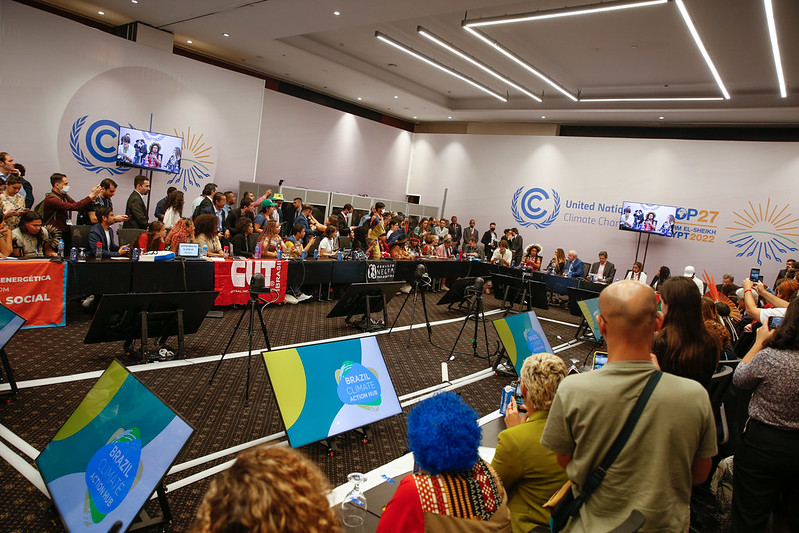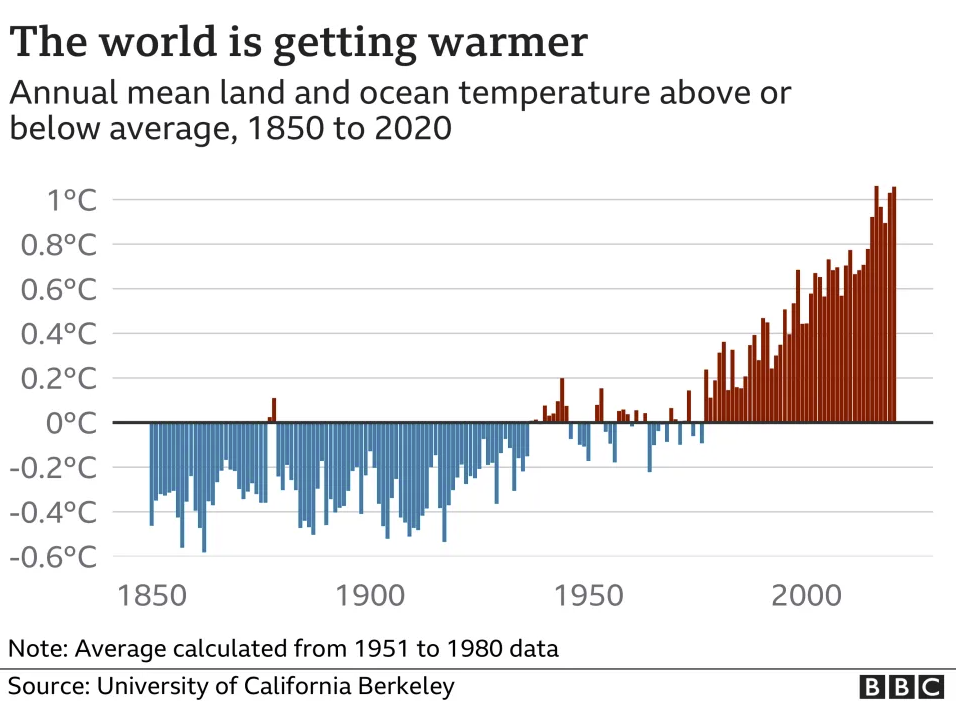
In November 2022, world leaders and government officials gathered in Egypt for the COP27, the 27th Conference of the Parties to the United Nations Framework Convention on Climate Change.
What was the outcome of COP27?
During deliberations a deal was struck to create a “loss and damage” fund. This is a major breakthrough and will allow developing nations to receive assistance in tackling the climate crisis.
One year on from COP26
A year ago at the UN climate change conference, COP26, the world’s eyes were focused on Glasgow, Scotland, for what was billed as the “last best chance” to keep global warming at 1.5 degrees Celsius.
Despite the climate crisis continuing unabated, things have a bit more of a mellow feel to them this year.
At COP26, the focus was on making progress towards the commitments made at COP21 and COP22, including the finance for climate action in developing countries.
The COP27 focus was on progressing the commitments made at COP26, including delivering the finance for climate action in developing countries.

Climate agreements
After protracted negotiations over two days, a deal seems to be in sight, with negotiators at the global climate conference in Egypt now making some headway.
A COP27 agreement that leads to a fund to help climate-ravaged countries may lead to a deal for an emissions reduction fund. Countries are still deadlocked on emission reductions.
- Since the last Conference of the Parties (COP) in November 2021, the climate crisis has dramatically escalated with extreme weather records broken on every continent.
- Some countries and regions have faced multiple disasters, swinging from deadly heat and drought into cataclysmic floods, with no time to recover.
- The pressure for countries to do more to tackle the root cause of climate change – the burning of coal, oil and gas – has never been greater.
- After almost a decade of stalled climate policy in Australia, the federal government has legislated a new emissions reduction target to cut emissions by 43% by 2030 (based on 2005 emissions).
Collaboration towards renewable energy
Cross-sectoral collaboration is critical to successful climate negotiations, and international development banks are central to the implementation of climate action in developing economies.
Public and private sector collaboration is essential if we’re going to move away from coal towards renewable energy, and this was the theme at the Global Wind Energy Council pavilion, where Green Investment Group portfolio company Corio Generation’s CEO, Jonathan Cole, was speaking on a panel about financing the transition from coal to renewables, and the opportunities to do so in Asia.
The Loss and Damage Fund
Progress on the damage fund despite a number of rich countries opposing the idea because they might be held liable for the harm that will be done by the fund.
China and India have requested a phase down of use of fossil fuels, and this draft agreement could lead to a worldwide ban on all fossil fuels, if countries follow through with their pledges.
- The world will reach dangerous 2.4°C of global warming if all countries around the world meet their current 2030 emissions reduction targets.
- The world has already warmed by around 1.2°C, putting us at risk of triggering abrupt and irreversible changes that would be catastrophic for human societies. Every increment of warming raises those risks.
- Countries must go far beyond what they have already committed to do, and they need to do it faster than planned. This is a make-or-break decade. There are no second chances to get this right.

- Countries which emit the most carbon dioxide
Australia and the global climate crisis
Australian fossil fuel exports have doubled since 2005, and there are dozens of new coal and gas projects under various stages of development. Australia is a major contributor to the global climate crisis. COP27 was the federal government’s opportunity to demonstrate that Australia is back at the negotiating table, but that we’re willing and able to play a serious role in rolling out the solutions we need at the scale and pace that the science demands.
With an effective international climate change policy, Australia could be a critical partner in helping to advance the goals of a sustainable future for all.
Our country will also play a key role in the export of clean energy commodities and critical minerals that other nations need to decarbonise their economies.
Contact us if you are interested in having your business join the NoCO2 Certification Program. Explore the certification options available to your business under the NoCO2 Program, on your journey to becoming carbon neutral.
COP27 photo credit: UNclimatechange


